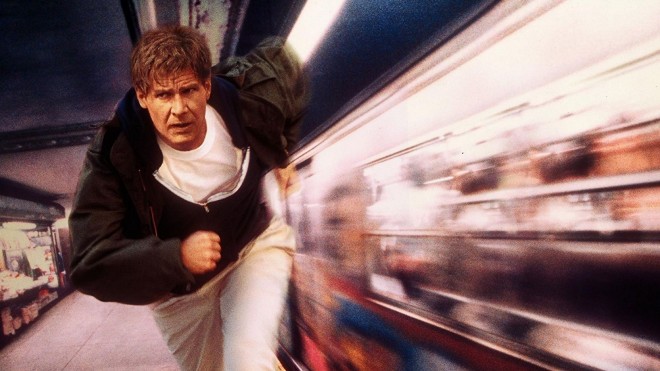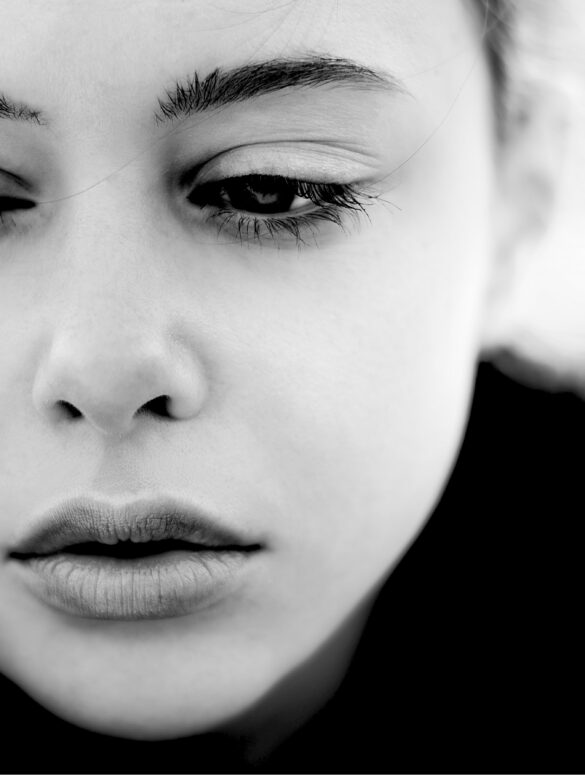How to recognize your own masks and the masks worn by other people? We can learn this with the help of Liz Burbo's psychological test.
If the child is allowed to be who he is, then as an adult he will behave "normally", balanced and will never have a crisis. Unfortunately, such children and later adults hardly exist. Most of us grow up through it four phases.
- Discovering the joy of life, that is knowing oneself.
- Sadness, because we cannot be who we are, and the realization that we can be hurt.
- A period of crisis and rebellion.
- Consciousness and creating a mask or a new personality that meets the expectations of mature adults.
Psychological test "5 traumas":
Many people stay in the third stage and stay in the stage for a long, long time has already, crises and contradictions. Between the third and fourth stages, we age a new personality, a mask that serves us as protection against pain, which we experienced in the second phase. There are only 5 such masks and they correspond to the five main mental traumas that the person has experienced or experiences them.
1. Rejected people wear the mask of a refugee.
The body of such people is always tense. One side of the face is quite different from the other, the asymmetry is obvious. Shoulders are slouched, hands are usually pressed against the body. They try to take up as little space as possible with their bodies.
The look of a rejected refugee is often absent and thoughts driven by fear are somewhere far away. Material things and money do not bring them satisfaction, everything, what they want, is love. They strive for perfection, they are obsessed with spirituality. Their sex life comes last, he is usually rejected. The rejection of one of the parents led them to hate each other. When they talk about themselves and their family, they often use the words "nobody and nothing". At work they try to be invisible and they feel that no one understands them.

Attention from other people scares them because they are not sure how they should behave in this situation. They have very few friends, especially while growing up. They are afraid of touch. They unconsciously defend themselves in the most ordinary conversations, crossing their arms in front of them. They are afraid of mistakes and condemnation, public appearances, exams. They don't believe in other people's feelings and they run away from love. They talk very little, eat little. They don't want professional help, they blame themselves for everything. Most often, these are unwanted children who were born unplanned or whose parents were expecting a child of the opposite sex.
2. Abandoned people wear the mask of the envious.
Muscles are weak, posture is poor. They have big, beautiful, but sad eyes. They turn every situation into a drama. They like to do service and get praise and thanks for it. They accept the obligations of others and do not want to burden anyone with their demands and needs. They are afraid to tell their partner about their mistakes because they are afraid that he will leave him. When humiliated, they show patience and courage. They fear authority. They don't finish a single thing and they they are afraid of all life changes. They are very attached to their children and their loved ones. They want someone to need them. They love to be touched and often cry. They have a need for attention, for the presence of someone. They are indecisive and often foresee drastic failure.

Their moods change all the time, now they are happy, now they are sad. They have a need by physical connection – holding hands, hugging, touching. They are eager for love, recognition, attention, at any cost. Because of this, you can they become manipulators. Their greatest fear is loneliness. Most often, these are children abandoned between the first and third year of life, who were then cared for by foster parents or other people.
3. Humiliated people wear the mask of a masochist.
These people often fight for themselves and others. They blame themselves for the clumsiness to which they are prone. They want to, for someone to tell them, what to do. They bring themselves to the position of a slave, both at home and at work. They want to be unique and important. They usually hide a lot of trauma. They are extremely sensitive but ignore their own needs. They are shy in sex, they believe they are without value. They love small things and get attached to objects.

They condemn and humiliate themselves, even in front of others. They tend to make others feel guilty as well. They unconsciously want freedom, but on the other hand, they are afraid of this same freedom, as well as restrictions, obligations and tasks. They do what they do not like, they neglect their soul. They believe so sex is a sin and have a high level of self-control. They often recall how the ghosts were ashamed of their behavior and then punished them horribly for it.
4. Betrayed people wear the mask of an overseer.
The body of these people radiates strength. Their eyes are like a scanner – they read a lot and understand at first glance. They wish they could do everything themselves, to be strong and responsible. They are dedicated and loyal, but impatient. In any case, they have no nerve for slow people. They want primacy at any cost! They calculate everything, they want to know in advance, they are very precise. They criticize the irresponsibility and mistakes of others, but do not notice it in themselves. They do not avoid conflicts, have a good memory and do not trust anyone.

They judge everyone, who does not think alike, like them. They want to control everything and everyone. They want their word to be the last. They are prone to manipulation, so that they can achieve what they want. They do not trust their loved ones and are often jealous. A partner is compared to a parent of the opposite sex. They are afraid of separation. People with the mask of a supervisor were repeatedly betrayed by their parents in childhood - they did not meet their expectations and often abused their trust.
5. People who were wronged in childhood wear the mask of strict people.
A firm body, a perfect line, firmness, tense movement, perfect posture, beautiful skin and a radiant face - these are the things that distinguish austere people who are once suffered many injustices. They strive for perfection, justice, flawlessness. They withdraw from their own emotions because they are afraid of them. They want to be productive, they are optimists. They are self-critical and underestimate themselves. They divide things into extremes into good and bad, accurate and inaccurate. They are dynamic, love speed. They blush in unpleasant situations. They demand too much of themselves, they like to command, they love dark colored clothes. They constantly compare themselves to better and worse.

It's a shame they waste time shopping. They don't like gifts and they don't know how to show love. They act cold and emotionless, it is difficult for them to communicate with those close to them. They are afraid of touch, they flirt only from a distance. They dream of a perfect relationship, they are afraid of disappointment. They are nervous. The same-sex parent was strict, intolerant and harshly critical of these people, most likely between the ages of four and six. Their parents passed on to them the coldness and inability to show their feelings and to understand them.
More information:
medicine-guidebook.com






